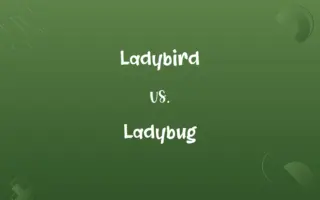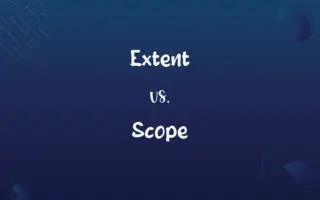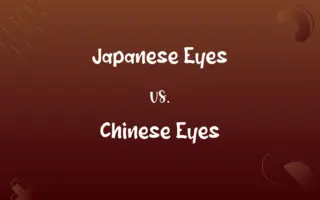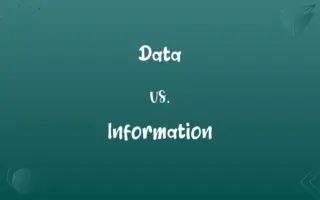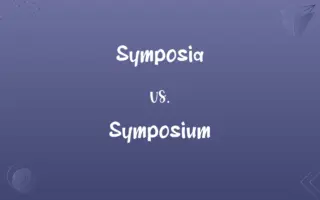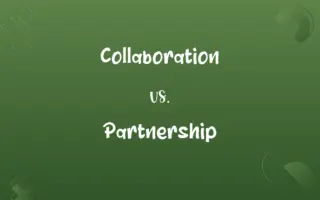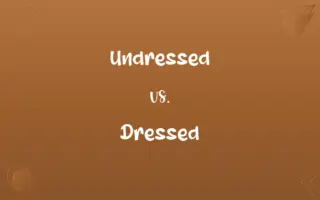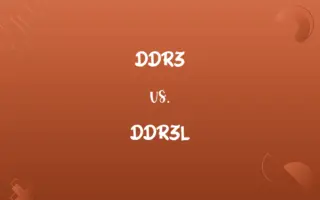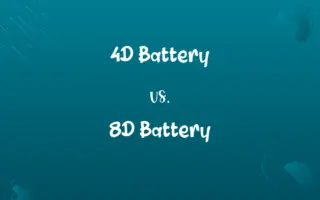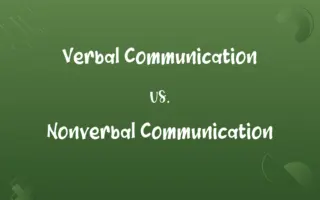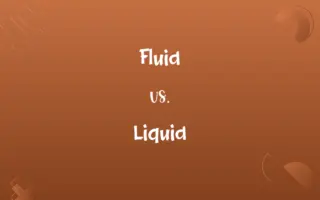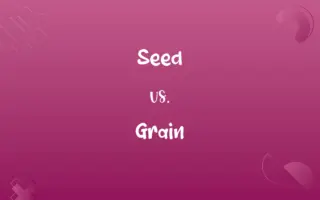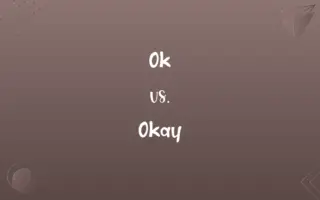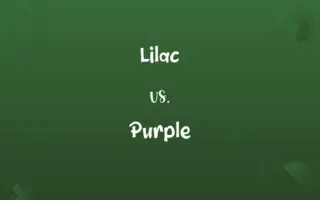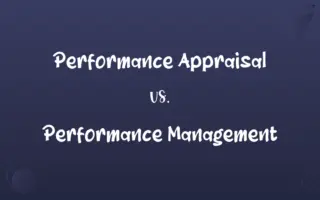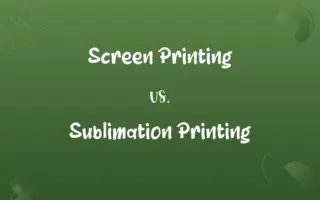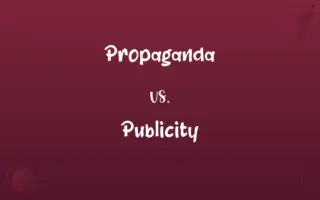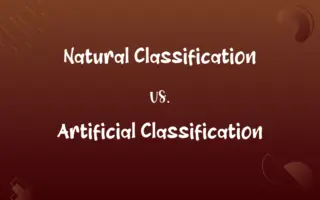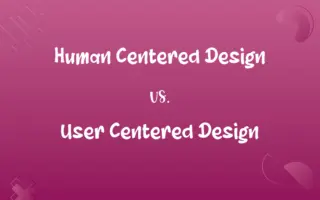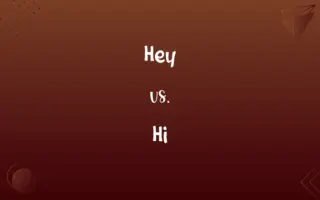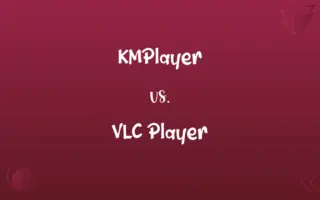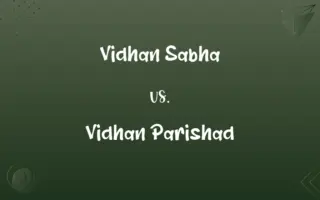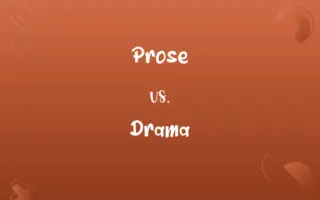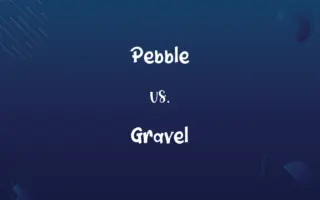Logic vs. Reason: Know the Difference

By Shumaila Saeed & Hifza Nasir || Published on April 9, 2024
Logic is a formal system of reasoning, focusing on the structure of arguments, while reason involves the process of thinking and reasoning in a broader, more subjective sense.
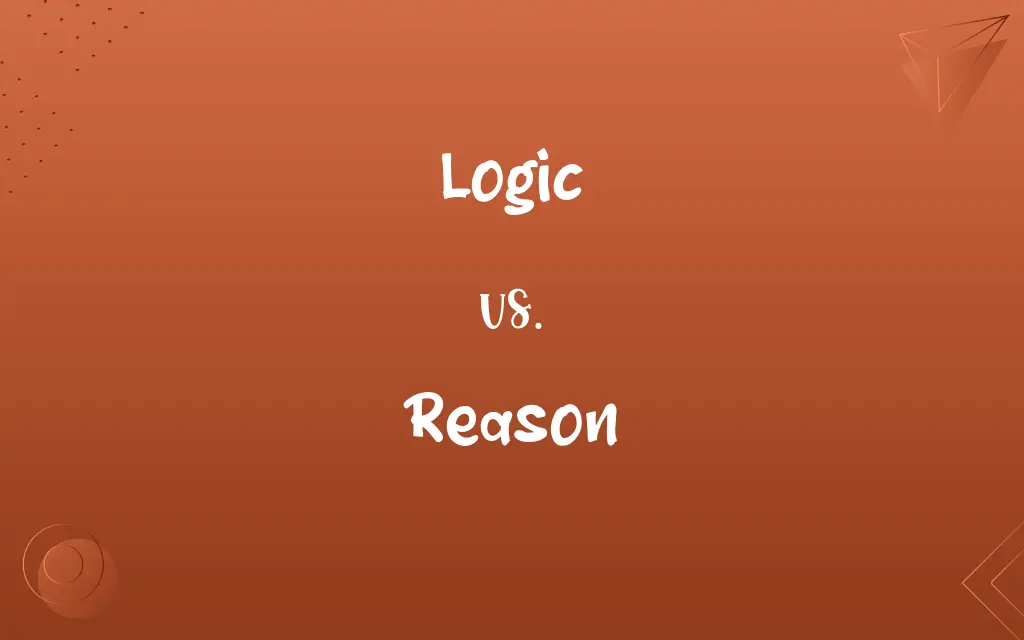
Key Differences
Logic is a structured method used in evaluating arguments, where premises are methodically assessed to determine the validity of conclusions. It relies on formal principles and rules. On the other hand, reason is the cognitive process of making sense of ideas, solving problems, and forming judgments, which is more fluid and can involve emotions and personal beliefs.
Hifza Nasir
Apr 09, 2024
Logic often employs symbolic representation and quantifiers to express ideas in a precise manner, aiming for clarity and universality in understanding. Whereas reason can be influenced by cultural, emotional, and personal factors, making it subjective and varied across different contexts.
Shumaila Saeed
Apr 09, 2024
In logic, arguments are categorized as valid or invalid based on their structure, without considering the truth of the premises. Conversely, reason involves evaluating the truth or falsity of statements or beliefs based on evidence and logical coherence, making it more about content than form.
Shumaila Saeed
Apr 09, 2024
Logic is typically used in disciplines like mathematics, computer science, and philosophy, where formal and clear structures are paramount. Reason, however, is utilized in everyday decision-making, ethical deliberations, and personal reflections, where subjective understanding and emotional intelligence play significant roles.
Hifza Nasir
Apr 09, 2024
Logic seeks to eliminate ambiguity and strives for definitive conclusions through deductive reasoning. Meanwhile, reason can embrace ambiguity and uncertainty, often employing inductive reasoning to make best guesses or hypotheses based on available information.
Shumaila Saeed
Apr 09, 2024
ADVERTISEMENT
Comparison Chart
Definition
A formal system of principles used to derive conclusions from premises.
The mental process of thinking, understanding, and forming judgments.
Hifza Nasir
Apr 09, 2024
Focus
Structure of arguments and validity.
Content of arguments and truthfulness.
Shumaila Saeed
Apr 09, 2024
Use in Disciplines
Mathematics, philosophy, computer science.
Everyday decision-making, ethics, personal reflection.
Shumaila Saeed
Apr 09, 2024
Type of Reasoning
Deductive (from general to specific).
Inductive (from specific to general) and deductive.
Shumaila Saeed
Apr 09, 2024
Influence
Rules and formal principles.
Personal beliefs, emotions, cultural contexts.
Shumaila Saeed
Apr 09, 2024
ADVERTISEMENT
Logic and Reason Definitions
Logic
Deductive reasoning is a core component of logic, ensuring conclusions follow from premises.
In mathematics, deductive logic proves theorems from axioms.
Hifza Nasir
Mar 01, 2024
Reason
Philosophically, reason is considered a fundamental human faculty.
Enlightenment thinkers emphasized the power of human reason.
Shumaila Saeed
Mar 01, 2024
Logic
Logic is foundational to computer algorithms and programming.
Logic gates are the building blocks of digital circuits.
Hifza Nasir
Mar 01, 2024
Reason
Reason is used to evaluate the credibility of information.
She used reason to distinguish between reliable and unreliable sources.
Shumaila Saeed
Mar 01, 2024
Logic
A system of reasoning that evaluates the validity of arguments.
In logic, if all premises are true and the argument is valid, the conclusion must be true.
Shumaila Saeed
Mar 01, 2024
ADVERTISEMENT
Reason
Reason involves critical thinking and problem-solving.
He applied reason to figure out the most efficient route to work.
Hifza Nasir
Mar 01, 2024
Logic
Symbolic logic uses symbols to represent logical forms and relationships.
In symbolic logic, ∀ represents for all and → signifies implication.
Shumaila Saeed
Mar 01, 2024
Reason
Emotional intelligence can influence one's capacity for reason.
Understanding others' emotions enhances the quality of one's reasoning.
Hifza Nasir
Mar 01, 2024
Logic
Fallacies are errors in reasoning that violate the principles of logic.
An ad hominem fallacy attacks the person rather than addressing the argument.
Hifza Nasir
Mar 01, 2024
Reason
The mental faculty of making inferences, judgments, and decisions.
Using reason, she decided to save money for future emergencies.
Dua Fatima
Mar 01, 2024
Logic
The study of principles of reasoning, especially of the structure of propositions as distinguished from their content, and of method and validity in deductive reasoning.
Shumaila Saeed
Mar 01, 2024
Reason
The basis or motive for an action, decision, or conviction
There are good reasons to learn a foreign language. See Usage Notes at because, why.
Shumaila Saeed
Mar 01, 2024
Reason
A declaration made to explain or justify action, decision, or conviction
What reasons did she give for leaving?.
Shumaila Saeed
Mar 01, 2024
Reason
A fact or cause that explains why something exists or has occurred
The reason for the building's collapse is unknown.
Shumaila Saeed
Mar 01, 2024
Logic
The relationship between elements and between an element and the whole in a set of objects, individuals, principles, or events
There's a certain logic to the motion of rush-hour traffic.
Hifza Nasir
Mar 01, 2024
Reason
The capacity for logical, rational, and analytic thought; intelligence
"Most of us would like to believe that when we say something is right or wrong, we are using our powers of reason alone" (Carl Zimmer).
Shumaila Saeed
Mar 01, 2024
Logic
The study of the principles and criteria of valid inference and demonstration.
Hifza Nasir
Mar 01, 2024
Reason
To determine or conclude by logical thinking
The doctor reasoned that the patient had a virus.
Hifza Nasir
Mar 01, 2024
Logic
The principles that guide reasoning within a given field or situation;
Economic logic requires it
By the logic of war
Shumaila Saeed
Mar 01, 2024
Reason
To use the faculty of reason; think logically
What would lead you to reason so?.
Dua Fatima
Mar 01, 2024
Reason
An excuse: a thought or a consideration offered in support of a determination or an opinion; that which is offered or accepted as an explanation.
Dua Fatima
Mar 01, 2024
Reason
To find by logical processes; to explain or justify by reason or argument; - usually with out; as, to reason out the causes of the librations of the moon.
Shumaila Saeed
Mar 01, 2024
Reason
Decide by reasoning; draw or come to a conclusion;
We reasoned that it was cheaper to rent than to buy a house
Shumaila Saeed
Mar 01, 2024
Repeatedly Asked Queries
What is reason?
Reason refers to the capacity for consciously making sense of things, applying logic, and establishing and verifying facts.
Hifza Nasir
Apr 09, 2024
How does logic differ from reason?
Logic is a formal system of analysis focused on argument structure, while reason is a broader cognitive process involving judgment and problem-solving.
Shumaila Saeed
Apr 09, 2024
Can reason be illogical?
Yes, reasoning can be illogical if it relies on faulty premises or fallacies, diverging from strict logical principles.
Shumaila Saeed
Apr 09, 2024
Is logic always objective?
Logic aims to be objective by following established rules and structures, but its application can be influenced by subjective interpretations of premises.
Hifza Nasir
Apr 09, 2024
Can reasoning be improved?
Yes, reasoning skills can be enhanced through practice, education, and the application of critical thinking strategies.
Hifza Nasir
Apr 09, 2024
What role does logic play in mathematics?
In mathematics, logic provides the foundational principles for constructing proofs and establishing the validity of theorems.
Shumaila Saeed
Apr 09, 2024
What is logic?
Logic is the study of the principles and criteria of valid inference and demonstration, focusing on the structure of arguments.
Hifza Nasir
Apr 09, 2024
How do emotions affect reasoning?
Emotions can bias reasoning by influencing how information is perceived, evaluated, and acted upon, potentially leading to subjective conclusions.
Dua Fatima
Apr 09, 2024
What is deductive reasoning?
Deductive reasoning is the process of deriving specific conclusions from general principles or premises, central to logical analysis.
Hifza Nasir
Apr 09, 2024
What is inductive reasoning?
Inductive reasoning involves making generalizations based on specific observations, often used in hypothesis formation.
Dua Fatima
Apr 09, 2024
Why is logic important?
Logic is crucial for ensuring clarity, consistency, and validity in arguments, aiding in effective communication and problem-solving.
Shumaila Saeed
Apr 09, 2024
How does culture affect reasoning?
Cultural backgrounds can influence reasoning by shaping values, beliefs, and the interpretation of information.
Shumaila Saeed
Apr 09, 2024
What is a logical fallacy?
A logical fallacy is an error in reasoning that weakens arguments, often due to irrelevant, misleading, or false premises.
Shumaila Saeed
Apr 09, 2024
How does logic relate to computer science?
Logic is fundamental to computer science, underpinning algorithms, programming languages, and the operation of digital circuits.
Shumaila Saeed
Apr 09, 2024
Why is reasoning considered a human faculty?
Reasoning is seen as a distinctively human faculty because it involves conscious thought, reflection, and the ability to make informed decisions based on logic and evidence.
Shumaila Saeed
Apr 09, 2024
Share this page
Link for your blog / website
HTML
Link to share via messenger
About Author
Written by
Shumaila SaeedShumaila Saeed, an expert content creator with 6 years of experience, specializes in distilling complex topics into easily digestible comparisons, shining a light on the nuances that both inform and educate readers with clarity and accuracy.
Co-written by
Hifza Nasir

